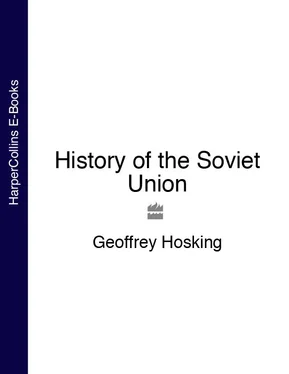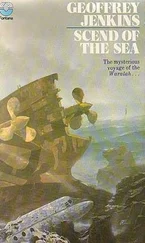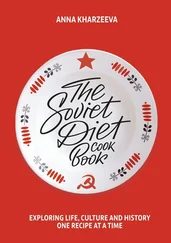The tsarist monarchy was finally overthrown in the midst of the First World War. Major wars, of course, raise all the stakes in domestic politics, since survival itself is at issue. Furthermore, the government fought this one before a Duma which proved watchful and at times bitterly critical, while the press, though under wartime censorship, remained freer than at any time before 1905. Whether the constitutional monarchy founded by the October Manifesto could have survived if there had been no war is an open question. What is certain is that the war caught it at a very vulnerable moment, when it had not yet fully established itself in the eyes of the public, yet was already suffering from the exposure to fierce criticism which civil liberties made possible. Bloody Sunday had weakened the reputation of the tsar. His standing was now further undermined by rumours–bandied around in the press though never substantiated–that the royal family was being compromised by a ‘holy man’ of dubious credentials, Rasputin, and that the court even had treacherous connections with the enemy, Germany. As the normally restrained Milyukov put it in a famous Duma speech of November 1916, ‘Is this stupidity or is it treason?’
Against the background of such public accusations, the more or less normal difficulties of war, military defeat, shortages of guns and food, became magnified into matters involving the very survival of the monarchy.
The end came relatively suddenly, and to at least the revolutionary parties, unexpectedly, in February 1917, when food queues in Petrograd suddenly turned into political demonstrations, demanding an end to what many still called the ‘autocracy’. When even the Cossacks, long the faithful upholders of order, refused to disperse the crowds, Nicholas II suddenly found that he had no supporters. Liberals and socialists were in agreement, for the first time since 1905, and what they agreed was that the monarchy must go. Fearing for national unity, not even the army generals attempted to resist the demand. Two Duma deputies were sent to see the tsar, who tendered his abdication in a railway carriage outside Pskov, on 2 March 1917.
As we now know, the collapse of the monarchy opened the way to eventual rule by Marxist revolutionaries. Russia became the first country to fall under Marxist socialist domination. In the light of Russia’s previous history it is perhaps possible to see why this should have been so. The country’s life had long been arranged on highly authoritarian lines (at least until 1905), dominated by an ideology which was ostensibly religious but was imposed by secular means and thus forfeited most of its spiritual authority. In this sense Russia was ripe for takeover by a self-avowedly secular ideology bearing unacknowledged religious overtones–which is what Marxism was, especially in its Bolshevik form.
In a very real sense, in fact, the Russian autocracy, especially since Peter I, provided a pattern for socialist rule: the notion of the ideological state to which all ranks of the population owed service absolutely and in equal measure. Much, however, was yet to happen before this variant of Marxist socialism gained the upper hand.
It was a mark of the abruptness of political change in Russia that when the monarchy fell, what replaced it was not one regime, but two. On the one hand, the politicians surviving from the Duma established a Provisional Government, in which the principal parties were at first the Kadets, later the Mensheviks and Socialist Revolutionaries. It was called ‘provisional’ because it was to exercise power only until a Constituent Assembly could be convened, elected by all the people. On the other hand, the workers of Petrograd (as St Petersburg was now called) hastened to revive their memories of the days of freedom in 1905 by re-establishing the Petrograd Soviet. They were joined by the soldiers of the capital city’s garrison, active participants in the revolution for the first time, and their joint tribune was known as the Soviet of Workers’ and Soldiers’ Deputies.
But government and soviet refrained from trying to oust each other–for good reason. The Provisional Government, which began by abolishing the tsarist police and security services, had no effective power of coercion, and therefore had to tolerate the soviets as expressions of the popular will, at least in the big cities. As the minister of war, Guchkov, said, ‘The Provisional Government does not possess any real power; and its directives are carried out only to the extent that it is permitted by the Soviet of Workers’ and Soldiers’ Deputies, which enjoys all the essential elements of real power, since the troops, the railroads, the post and telegraph are all in its hands.’ The leaders of the soviets, for their part, recognized that the Provisional Government contained experienced politicians, that it could command the loyalty of the army officers, reduce the chances of counterrevolution, and gain international recognition. The theoretically inclined among them regarded the Provisional Government as a ‘bourgeois’ institution, which the soviets would ‘supervise’, on the workers’ behalf, until such time as the socialist revolution became possible.
The Provisional Government was from the start in a very difficult, arguably an untenable position. It had not been brought to power by election, but nor could it claim direct descent from the old imperial government or the Duma. Prince Lvov, its first prime minister, proclaimed that it had been created by the ‘unanimous revolutionary enthusiasm of the people’. That was to prove a shaky basis, especially since the new government found itself in a situation where it was unable to carry out the reforms that the ‘people’ were expecting. The fundamental difficulty was the war. The peasants might be crying out for a redistribution of the land in their favour, but could such a complex operation be carried out equitably without first a thorough land survey, and while millions of peasant-soldiers, with an impeccable claim to their own shares, were far away from the village at the front, and unable to take part in the share-out? The workers began to organize themselves to exercise a greater share in the running of factories and enterprises, but was it responsible to attempt such intricate reorganization in the middle of keeping up industrial output for the war effort? Could the supplies problems, which had brought the tsarist government down, be solved while the war was on? Most important of all, was the soldiers’ demand to elect their own committees and to take part in the running of their units compatible with the discipline needed at the front line?
While the war continued, none of these questions could be solved without serious and damaging political conflict. And yet, to stop the war proved almost impossible (I say ‘almost’, since the Bolsheviks did eventually achieve it, but at a price which nearly split the party in two). The leaders of the Petrograd Soviet tried to organize a conference of socialists from all the combatant states, to put pressure on their governments to negotiate a peace ‘without annexations or indemnities’. The British and French governments, however, put paid to this plan by refusing to allow representatives from their parliaments to attend. The alternative would have been to sign a separate peace with Germany and Austria-Hungary, but this would have amounted to a capitulation, and not until the Provisional Government was in its final days did any of its members recommend such a desperate step. So the war went on. Its problems continued to undermine the Provisional Government’s efforts to establish a new political system, until the popular expectations aroused by the February revolution finally brought the Bolsheviks to power.
Читать дальше












